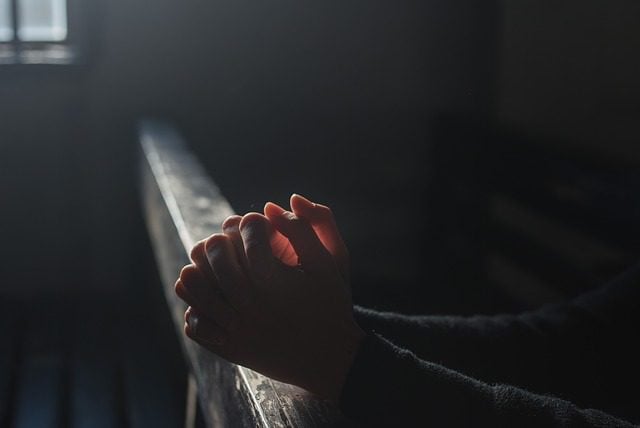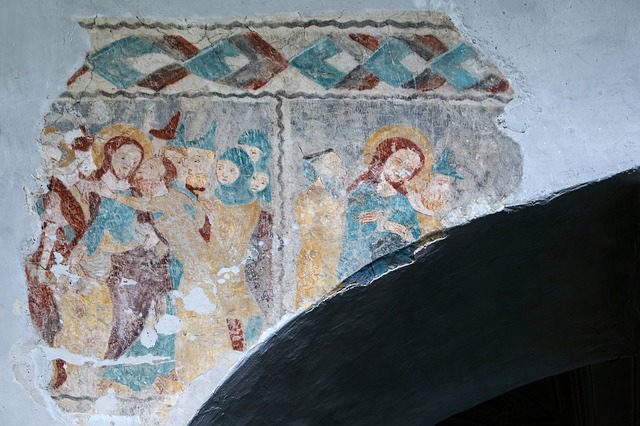In the pages of Shaka Senghor’s memoir, Writing my Wrongs, I found one theme: the dignity of the human person. That is the theme to everything when you look at Catholic Social Teaching. Easter Season is the perfect time to be reminded of that.
Shaka writes about his childhood and his mother’s spankings along with the divorce of his parents and how that impacted his life. At 14 he began selling drugs after running away from home and at 17 was shot. At 19 he shot and killed a man which led him to prison where he served time for 17 years, many of those years in solitary confinement. The entire time that I read these memories of his life, I kept thinking that the one thing he was searching for was for one person to see him as a child and a person. He was longing for his dignity to be recognized. He went the wrong way entirely, but I, of all people, know exactly how easy that is to do. It is only by the Grace of God that I did not end up addicted to drugs, selling them and/or in prison.
It is so easy for us to look at people who are living lives that we know are full of criminal activity and think we know what is going on with them. The truth is that we have no idea unless we have lived in places where poverty and racism are the norm. We can judge right and wrong based on the culture that surrounds us in safe neighborhoods that aren’t riddled by those things, but until we live in a culture that surrounds people in these lifestyles, we have no idea. Writing My Wrongs is a honest and raw description of that culture that makes no excuses for it but allows us a window to look into it.
Nobody ever once looked at this 17 year old kid who had lived on the streets for years and was sitting in the emergency room with a gunshot and asked him what was wrong and figure out how could they help him. They had all written him off. How many times in life do we do give up on people without trying to get to the bottom of the conflict going on in a person’s life, heart and soul? I know that I do it with my own kids when they act out. I ground them or punish them or just yell at them, but to look them in the eye and ask them what is going on had never crossed my mind until reading this book.
Shaka also describes prison life in a profound way that gives the reader a sense of being there themselves. As someone who has been in and out of jail, I can honestly relate to so much of what he writes about being behind bars. There is this common acceptance in jail by those working there that it’s ok to do whatever they can to dehumanize those that they are guarding. I can’t really imagine what it is like to work in a jail or prison and it’s not like the people in there aren’t acting a fool, but no matter what a person has done, they are human beings and should be treated as such. When you strip a human being of their dignity then you can’t really be surprised when they act inhuman. For those of us on the outside who have no clue what goes on behind bars, this is a good way to learn. If we think that sending thousands and thousands of young Latino and Black men to prison, we should know what we are sending them to and how they are conditioned to live a life full of chaos so that when they are released, they have a hard time reentering into society. How can we help? That should always be our question as Catholics. No, it’s not just Latino and Black men, but that is the majority of the population of people behind bars. At what point will we stop and ask why that is? Or even why nobody seems to be asking that question as if we know the answer or don’t care why.
At one point in his book ,Shaka talks about what it was like in solitary confinement, which he spent 4 ½ consecutive years in, and he says that everyone was in their own cells with no human contact but they would talk to each other in the best way that they could, and even that brought conflict which would end with prisoners throwing their own feces at each other. This entire paragraph sounded exactly like social media to me. We sit in our own cells aka computers, talk to strangers all day, then when drama breaks out we throw shit at each other in the form of insults, comments, blog posts or just passive aggressive tweets. I have heard so many people, including myself, say that they hate Facebook but can’t seem to stay off of it. Sounds a lot like a prison of our own making.
I read Writing my Wrongs in a day and processed it for a week (it so happened to be Holy Week which meant a lot to me). I am making each of my sons and stepsons read it. It is an amazing book about redemption, about the power of love and about a man who didn’t allow his situation define him. He broke free from his wounds and anger while sitting in a cell in solitary confinement being treated like an animal. That is beauty of the human spirit, the fact that we can rise above our circumstances, even the worst of them.
Shaka is a man who broke free of the chains of oppression and his own past. This book doesn’t make any excuses for his actions; in fact his freedom began when he took responsibility for his actions and his education. Shaka is not Catholic, but I found this to be a very Catholic book in the sense that love, dignity of the human person and taking on the responsibility of our wrongs are all tenets of the Catholic faith.
Shaka Senghor is now working in his community mentoring children which is what he wanted to do once he was transformed into a new man. I have said often that if everyone who complains about the situation in the hood would mentor as much as they flap their gums, change would happen overnight. Shaka is a part of that change now.
I have a new perspective on parenting, on the devastation of divorce on children and on the humanity of those who are incarcerated. I hope that everyone reads this book in order to see the humanity in the “thugs” as well, because as Catholics that is what we are called to see, especially in this Year of Mercy.
I will have an interview with Shaka Senghor next week and can’t wait to share it with you. If you would like to hear a little of his story, you can check out his TED talk.
Stay in touch! Like Leticia Ochoa Adams on Facebook:












